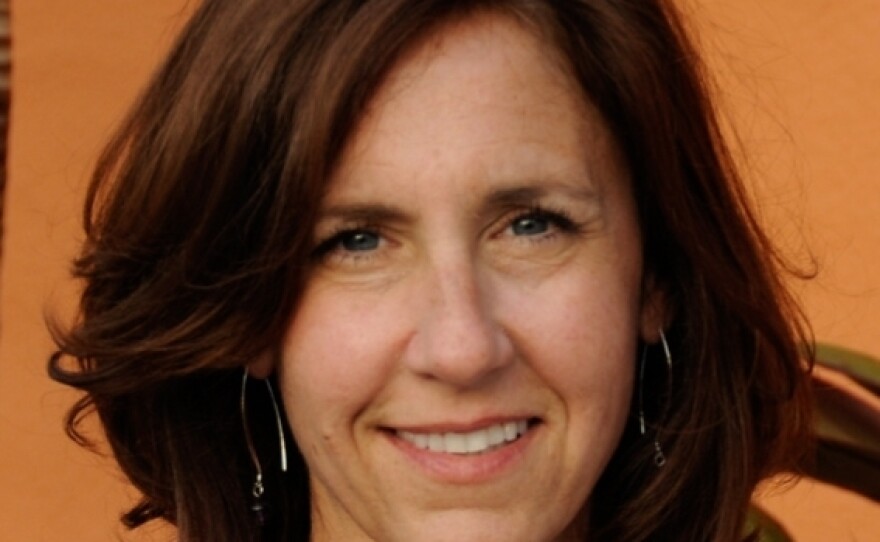Susan Spencer-Wendel knows how to spend a year.
She left her job as an award-winning criminal courts reporter for The Palm Beach Post and went to the Yukon to see the northern lights. Then to Cyprus, to meet family that she never knew. She and her husband, John, took their children on trips on which her daughter got to try on wedding dresses and Susan got kissed by a dolphin.
She also got a new dog, put a splendid hut in her backyard and wrote a book. It's called Until I Say Good-Bye, and it's a memoir about the year she says she wanted to devote to joy — before she's claimed by ALS, a neuromuscular disorder often referred to as Lou Gehrig's disease.
Susan was diagnosed in 2011, at the age of 44. In an interview conducted a few months ago, she tells NPR's Scott Simon that when she got the news, she felt "equally grateful for a life of perfect health and determined to face it with bravery." And a sense of humor, too: Asked how they broke the news to their children, Susan and John say, "Very carefully! Don't overwhelm them with bad news. Just a little bit at a time." John must help speak for his wife, since muscle damage caused by ALS has affected her speech.
She wrote the book — all 89,000 words of it — on an iPhone, using her right thumb, the only finger she had use of. It took three months, and she compares the task to climbing a mountain or finishing a triathlon. "First and foremost, I wrote the book for my family and friends to have, to jog their memories after I'm gone," she says. "I also realized that, as a storyteller, it's an amazing tale of twinning good and bad fortune. Themes that touch everyday people: friendship, devotion and discovery."
Not everything went as planned during Susan's year of joy. She went with her best friend to see the northern lights — but no lights were to be seen. "As you know, life isn't perfect," she laughs. "The lights did not show. Still had a wonderful time there."

For John, it's been an understandably difficult time. "Every day I wake up, and I feel sad. That's my first emotion," he says. "And then I roll over, and I look at Susan, and I realize that she's not allowing herself to feel that way, so I can't, and I don't." Susan adds that she has down moments but is "generally doing pretty darn well."
That upbeat attitude is reflected in the book, which is genuinely funny. She says she didn't want to write something maudlin. "If you think it's funny, then we've made it home," she says.
We checked in with Susan this week. Asked how she's doing, she wrote: "My pat answer is, as well as can be expected. My body and voice become weaker every single day, but my mind becomes mightier and more quiet. You do indeed hear more in silence."
Copyright 2023 NPR. To see more, visit https://www.npr.org. 9(MDAzMjM2NDYzMDEyMzc1Njk5NjAxNzY3OQ001))





